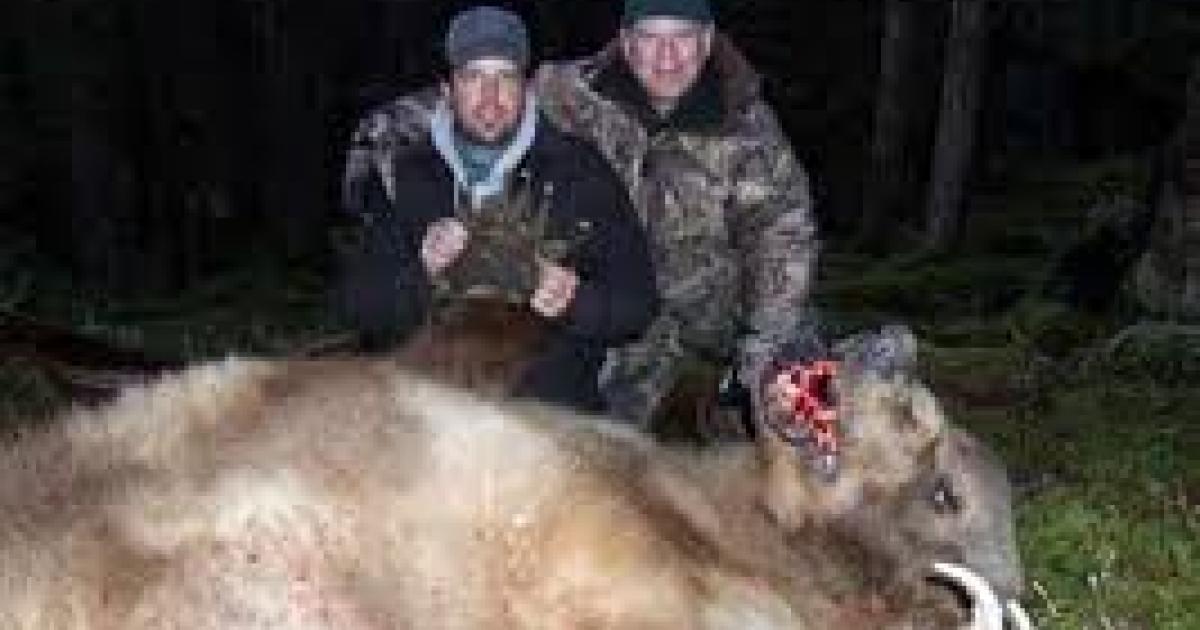Prohibit the legal and illegal home of bears in Alaska, protect them with laws and tough economic sanctions
people signed. Let's get to 10,000!

Addressed to: Senate of the United States of America and 4 more
The Senate approved the removal of restrictions on the hunting of bears and wolves in wild Alaskan shelters.
The current regulations prohibit aerial hunting, the use of food as bait to attract animals and then shoot them, as well as kill predators or their puppies near their huts.
The Senate approved, in a vote of 52 to 47, a bill that repeals the restrictions imposed by the Fish and Wildlife Service during the administration of Barack Obama to prevent hunting in the national wildlife refuges in Alaska.
The Senate House had already voted on the initiative last month to eliminate the current protection of the dams. Now only the signature of President Donald Trump is pending.
The current rule prohibits hunting even for "predator control" in the 16 shelters that are federally owned in Alaska. That rule also restricts aerial hunting, the use of food as bait to attract animals and then shoot them, as well as killing predators or their puppies near their huts.
In other words, the Trump administration plans to repeal the previous regulations of the Fish and Wildlife Service, which will allow hunters to attract grizzly bears with food to shoot them. It will also allow them to legally enter the dens of bears and wolves to kill mothers and their puppies, as well as shoot the bears from airplanes. In addition, traps with steel jaw jaws and wire meshes will be allowed.
Don Young, Alaska representative and who promoted the new bill ensures that it is necessary to eradicate these measures because they are excessive restrictions. "This action not only affects Alaska's ability to manage fish and wildlife in the refuge lands but it fundamentally destroys a cooperative relationship between Alaska and the federal government," he said.
"These restrictions changed the state's relationship with the Fish and Wildlife Service because it went from cooperation to servitude," said Republican Senator Dan Sullivan, also representing Alaska.
"Opponents argue that the repeal of this rule will legalize brutal practices of predator control, but the Senate should know that it is already illegal for hunters to use certain practices: gas against wolves, traps for bears, You can do this in the national wildlife refuges in Alaska, "Republican Senator Lisa Murkowski defended in the Dispatch News newspaper, saying the restrictions affect subsistence hunting for people in remote areas of Alaska." This rule is about subsistence, "he stressed.
But faced with the possibility of repealing these rules, several environmental organizations have expressed absolutely against. Senators like Democrat Maria Cantwell of Washington have also done so. According to her, it is not about the rights of the states or to prohibit hunting. "It's about how we can manage these wildlife refuges to the extent that agencies believe they are necessary for the preservation of these wildlife heritage areas."
The revocation of this regulation revives a dispute of years and priorities. For certain local leaders, the objective must be to have the maximum possible populations of species that are traditional prey, such as elk and caribou. They are convinced that to achieve this, it is necessary to sacrifice some predators such as bears and wolves. On the contrary, the regulations of 2016 do not agree and their proponents claim that Alaska has gone too far prioritizing the protection of prey on predators, who defends.
"This is not hunting, it is a killing, killing wolves and bears in this cruel, unsportsmanlike manner is scandalous, especially in national wildlife refuges that belong to all Americans." The repeal of these protections also undermines the critical role that Predators play in healthy ecosystems, "Brett Hartl, director of government affairs at the Center for Biological Diversity, said in an official statement.
In 2016, Dan Ashe, then director of the Fish and Wildlife Service, warned: "Unfortunately, without the protection of federal law and guaranteed public commitment, this heritage is incredibly vulnerable."
A survey conducted in 2016 among Alaskans by the Humane Society showed that most people agree that these hunting practices should be banned.
SIGN AND SHARE THIS PETITION
The content of the petitions and the opinions expressed here are the sole responsibility of the author.
